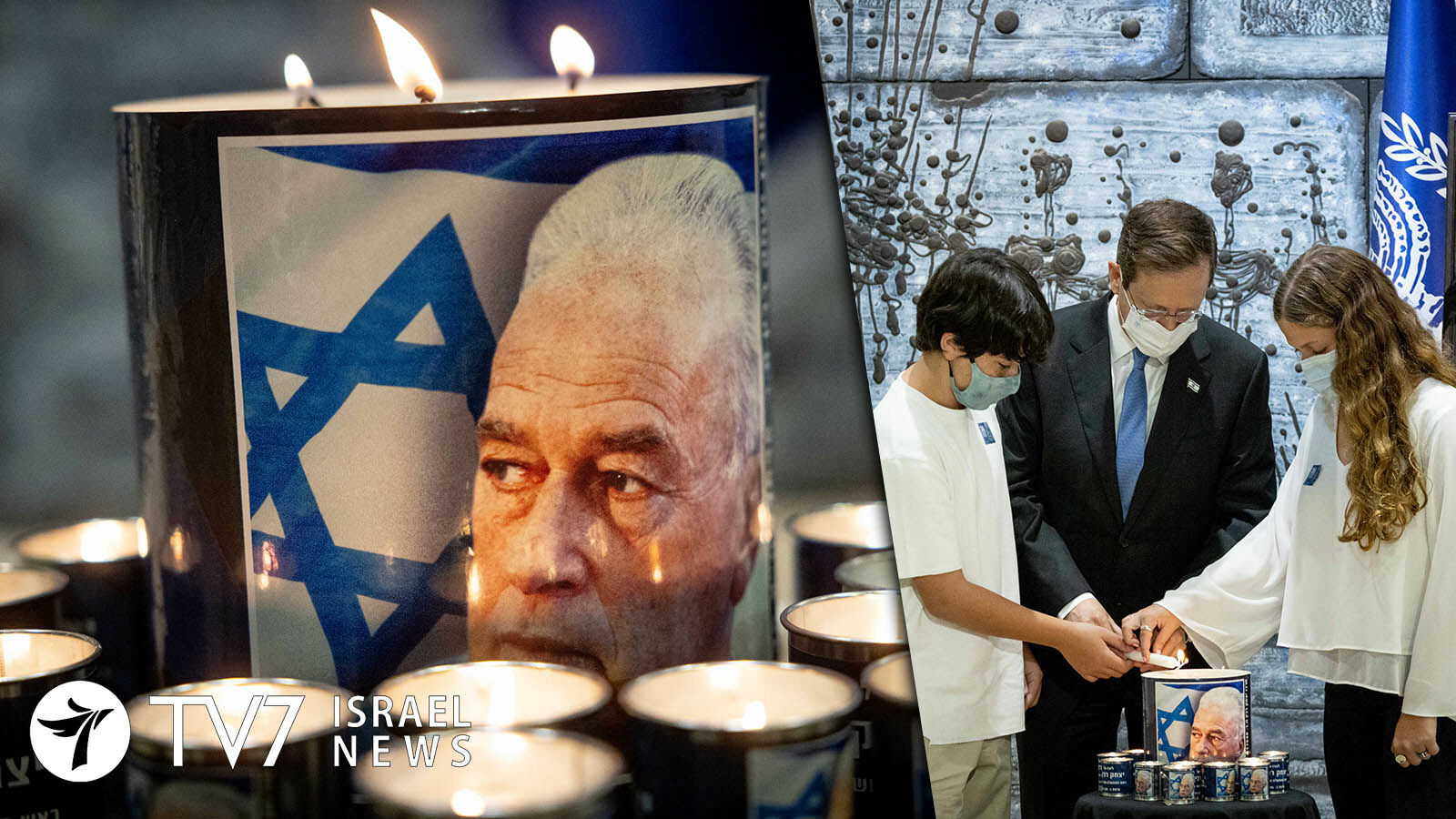Several official events were held in Jerusalem to mark the 1995 assassination of Israeli Prime Minister Yitzhak Rabin.
By Erin Viner
The 5th Israeli Premier was murdered on 5 November 1995 by rightwing extremist Yigal Amir, who opposed the Rabin government’s Oslo Accords with the Palestinians. Amir was convicted and is serving a life term in prison.
The anniversary is commemorated on the 12th day of the month of Cheshvan, in accordance with the Hebrew calendar date.
Rabin, who led the nation for two terms from 1974 to 1977, and 1992 until his his death, had been awarded the Nobel Peace Prize in 1994 along with then-Israeli Foreign Minister Shimon Peres and Palestine Liberation Organization (PLO) leader Yasser Arafat.
President Isaac Herzog and First Lady Michal Herzog participated in the official memorial ceremony, that was also attended by members of the Rabin family, Prime Minister Naftali Bennett, Knesset Speaker Mickey Levy, Supreme Court President Esther Hayut, members of the Israeli government, Members of Knesset (MKs), World Zionist Organization Chairman and Jewish Agency Acting Chairman Yaakov Hagoel, IDF Chief of Staff Lt. Gen. Aviv Kochavi, Israel Security Agency Director Ronen Bar, Israel Police Samaria and Judea District Commander Uzi Levy, IDF soldiers and various youth movements.
“There are some leaders for whom the passage of time since their passing only accentuates the greatness of their loss. There are some leaders, the longing for whom becomes more and more tangible every year. Yitzhak Rabin, an Israeli hero, was one such leader,” President Herzog said in an address to those gathered.
After reviewing Rabin’s accomplishments, including service as IDF Chief of Staff, ambassador, government minister and MK, President Herzog said, “He was a war hero and a hero of peace, and his actions were what led us in an historic, multigenerational process since then, into the present, to regional accords such as the Abraham Accords, relations with Morocco, which he established, and more,” who had been revered by the nation “as a hero, as a model, as a military and political leader.”
Warning against the “dangers of the incitement that ripped us apart as a society and opened a rift between us” leading up to Rabin’s death, the Israeli leader stressed, “To the leaders of this country, to its public opinion leaders and its citizens, I implore you from this mountain: in this situation, especially in this situation, raise a voice of moderation, of reconciliation, of outreach, of mutual respect! Empower what we have in common, not what divides us. And do this not only with your words but also, and especially with your keyboards! Because here, especially here, in front of the grave of the Israeli hero Yitzhak Rabin, we remember the lesson that we all learned about the dangers of polarization and division. Here we remember how 26 years ago, we witnessed just how slippery the slope is between invective words and dangerous deeds. Like bullets in the back of a leader.”
During a later service at Rabin’s grave at the Mount Herzl National Cemetery, Herzog underscored that, “This day is meant to ring the bells for all of us, year after year for a lifetime, the significance of political assassination in the sovereign State of Israel is meant to warn us all of the terrible extremism that can be reached when substantive and legitimate disputes move side by side and turn into hatred, which is accompanied by incessant incitement.”
Israeli Prime Minister Bennett said he learned in the wake of Rabin’s assassination that, “under no circumstances, no matter the situation, should the nation be torn apart. We cannot set the house on fire. We are brothers. The only comfort from this terrible murder is the fact that we managed to flourish, to correct.”
“I hope we learned that we cannot malign an entire community if one of its members… committed a crime,” Bennett later stressed at a special ceremony at the Knesset, explaining, “It wasn’t the right or the religious who murdered Rabin. Yigal Amir murdered him.”
The event was opened by Knesset Speaker Mickey Levy with a minute of silence in tribute to Israel’s assassinated leader, killed in what the Speaker called “a traumatic event that left a permanent wound in the heart of Israeli democracy that has not healed.”
Other prominent Israeli leaders to address the lawmakers included Foreign Minister and Alternate Premier Yair Lapid, who inflamed plenum by accusing far-right MKs of being Amir’s “ideological heirs” who would be currently serving as ministers had he not succeeded in forming a coalition government with Bennett. Leader of the ultranationalist Religious Zionism party Bezalel Smotrich and the ultra-Orthodox Shas faction Chairman Aryeh Deri were forced to leave the chamber after interrupting Lapid with objections to his assertions.
Opposition Leader Benjamin Netanyahu, who notably skipped the Mount Herzl ceremony due to what commentators said could be due to his tense relationship with the slain prime minister’s family, told the MK’s that, “We treat the late Yitzhak Rabin with deep respect for his many virtues, for his great contribution to Israel’s security and yet we do not hide for a moment the disagreements between us,” adding that “this is statesmanship.”
Rabin led the left-leaning Labor party and was an ideological rival of Netanyahu, who continues to serve as head of the rightwing Likud faction.
